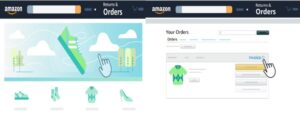Postponed VAT for the UK
What is postponed VAT accounting?
Postponed VAT accounting means that the importer does not pay import VAT. When the goods arrive at the UK port. The imposter indicates on the import declaration that postponed VAT statement. It will use and the goods can release without payment of the import VAT. UK VAT registered businesses can use postponed accounting to account for import VAT on goods worth more than £135. It means that VAT registered businesses can account for import VAT on their VAT return, rather than paying it upfront at the border.
From 1 January 2021, UK VAT registered businesses can account for VAT on imported goods in their VAT returns. This is term postponed accounting and applies regardless of where in the world the goods have been imported from. This change brings the cash flow benefit to traders. It will able to declare and recover (subject to the normal rules) import VAT in the same VAT return. There will a consequent cash flow disadvantage to the Treasury. It is also possible that the opportunity for fraud could increase. Since EC sales lists will no longer require. It may more difficult for HMRC to spot fraud.
How does postponed accounting for VAT work?
Rather than paying import VAT on goods at the border. The reclaiming it on your next VAT return ‘postpone’ the import VAT. This means that you will account for the import VAT and recover. It is same VAT return. You will not need to make a physical payment for the import VAT when your goods reach the UK border.
Do I need to change my VAT registration to use postponed accounting for import VAT?
There is no requirement to obtain permission to apply postponed VAT. Except for businesses which submit an authorised simplified declaration before I January 2021. VAT registered businesses can apply postponed accounting from that date provided the imported goods are for use in their business. They have included their EORI number on their customs declaration. VAT must account for in the VAT return which includes the date on which the goods are import. Just make sure that:
- Your business is VAT registered.
- You are importing goods which you will use in your business.
- The customs declaration shows both your VAT registration number, and EORI number.
You must have an EORI number to move goods between Great Britain (Wales, Scotland, and England) and other countries.
How do I show postponed accounting on my VAT return?
It is essential that you download the monthly postponed import VAT statements in order to complete your VAT returns.
You will need a Government Gateway account which is link to your EORI number to access your import VAT postponed import VAT statement.
Postponed VAT Accounting application conditions and procedures:
Global sellers apply for postponed VAT accounting by the logistics customs clearance company. They fill in the application form at the time of shipment. In addition to providing the corresponding company information, VAT and EORI numbers. The global seller must sign a tax agent authorisation guarantee. It is eligible to apply for a Postponed VAT Accounting deferred account.
The logistics company opens a Customer Declaration Account CDS customs clearance account for customers when importing goods. This CDS account holds all customs VAT clearance deferred information, which needs to reflect in the declaration record. When VAT declaration make every quarter.
What is CDS (Customer Declaration Account)?
CDS is a customs clearance declaration system selected during customs clearance. Customs clearance companies can still choose CHIEF’s customs clearance system for customs clearance, but CDS is a mandatory declaration link to record all customs clearance information. Originally, the code F for paying imported VAT was changed to A, and A means that VAT has not been paid for customs clearance.
Logistics and customs clearance companies must control the direction of the goods. If it is sent to FBA Amazon warehouses, there is no need to worry about this.
However, one thing that needs special attention is that cross-border e-commerce sellers must sign Tax Representative authorisation with the tax agent (Accountant). The logistics customs clearance company is responsible for confirming the authenticity of the tax agent (Accountant). The authorisation of the Tax Representative can prove it; logistics companies cannot fill in casually A tax agent company or other company information acts as the seller’s tax agent(Accountant) for VAT deferred customs clearance.
This is a link that logistics and customs clearance companies must control, and it is also a part of reducing their own risks. Otherwise, the tax agent has the right to refuse to declare the postponed VAT accounting VAT deferred account for the seller.


